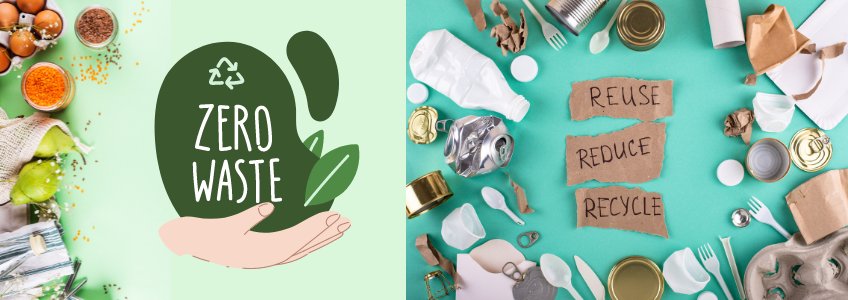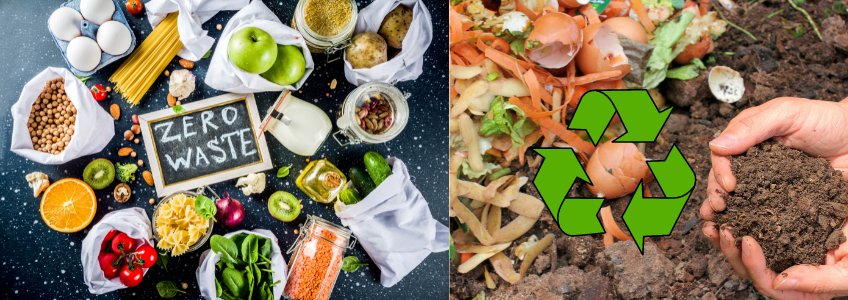
Amidst India’s growing food demand, the key to unlocking a sustainable future for the food processing industry lies in embracing zero-waste principles—transforming inefficiencies into opportunities for operational excellence.
|| 7 minutes read ||
Introduction
The Indian food processing industry is a key driver of the nation’s economy, contributing nearly 30% of India’s total food market. Yet, the sector faces mounting challenges due to its growing ecological footprint driven by rapid population growth and increased consumption. Reports indicate that 20-25% of all food produced in India is wasted annually, highlighting the need for more sustainable and efficient practices.
Adopting an Operational Excellence (OPEX) approach is critical to transforming the industry toward achieving a zero-waste environment, optimizing processes, and boosting productivity. In this post, we will explore how OPEX principles can drive the sustainable waste reduction in the food processing sector.
What is “Zero-Waste” in Food Processing, and Why Does it Matter?
Zero-waste in food processing refers to minimizing waste at every stage of the supply chain—from sourcing raw materials to delivering finished products. In India, food wastage occurs due to inefficient processing, inadequate storage, and poor transportation infrastructure. These inefficiencies not only result in significant financial losses but also have environmental implications, contributing to resource depletion and food insecurity.
A zero-waste approach aligns with Operational Excellence by streamlining processes to eliminate inefficiencies, reduce waste, and optimize resource use. This shift not only addresses sustainability goals but also enhances profitability, making it a strategic priority for the Indian food processing industry.
Waste Generation in Indian Food Production
Despite being one of the world’s top agricultural producers, India wastes around 68 million tons of food annually, valued at ₹90,000 crores. Key points of waste generation include:
- Post-harvest losses: About 10-15% of total production is lost due to poor storage.
- Transportation losses: Inadequate infrastructure causes 3-5% of food to spoil during transit.
- Processing losses: Inefficient production techniques in sectors like fruits and vegetables lead to 25-28% wastage.
These issues indicate the need for integrating OPEX methodologies to minimize inefficiencies and optimize the entire value chain.
Operational Excellence Strategies for a Zero-Waste Food Processing Industry

Achieving zero waste in India’s food processing sector requires adopting OPEX-driven strategies to improve every phase of the supply chain. Below are some key strategies:
1. Implementing Lean Manufacturing for Sustainable Innovations
Lean manufacturing, a key pillar of OPEX, focuses on eliminating waste and improving process efficiency. By adopting data-driven farming techniques such as precision agriculture, food producers can optimize resource use while minimizing crop losses. Additionally, processing facilities can implement sustainable packaging and repurpose surplus or damaged produce into value-added products like sauces or animal feed.
- OPEX Example: One of the MNC’s ‘e-Choupal’ initiatives uses digital platforms to improve farmer productivity, streamline operations, and reduce waste, aligning with Lean principles.
2. Optimizing the Supply Chain Through Continuous Improvement
An optimized food supply chain is crucial for reducing wastage. Implementing continuous improvement (Kaizen) initiatives, such as improving cold storage systems and optimizing transportation routes, can significantly reduce post-harvest losses. OPEX tools like Six Sigma can be applied to identify bottlenecks and eliminate variations in quality that lead to food wastage.
- Fact: According to sources, less than 10% of India’s perishable goods benefit from modern cold storage, highlighting the scope for operational improvements.
3. Upgrading Production Processes for Efficiency
OPEX emphasizes process optimization through technologies that conserve energy and water while minimizing waste. Implementing waste-to-energy systems can turn organic waste into biogas or compost, transforming waste into value. By leveraging Total Productive Maintenance (TPM), companies can improve equipment reliability, reduce breakdowns, and enhance productivity.
- Case Study: A reputed manufacturing company has adopted TPM and waste-to-energy systems, converting food waste into biogas, powering part of their operations while achieving significant waste reduction.
4. Enhancing Retail and Consumer Awareness Through OPEX Principles
In retail, data-driven tools can be used for better inventory management to reduce overstock and spoilage. Educating consumers on the impact of food wastage through targeted campaigns promotes responsible consumption. Retailers can also collaborate with NGOs to donate surplus food, reducing waste while contributing to social responsibility.
- Example: ‘Feeding India’ by a Food delivery company applies OPEX principles by redistributing over 5,000 tons of surplus food to those in need, improving both operational efficiency and social impact.
5. Strengthening Policy and Regulatory Frameworks
Government policies that incentivize companies to adopt sustainable practices align with the OPEX approach to long-term value creation. Encouraging recycling, better waste management systems, and offering subsidies for eco-friendly practices can drive systemic changes.
- Policy Insight: The Ministry of Food Processing Industries ‘Operation Greens’ program is aimed at reducing post-harvest losses by 20%, focusing on improved logistics and processing, aligned with OPEX goals.
Conclusion
Integrating Operational Excellence principles into the Indian food processing industry is essential for driving sustainability and reducing waste. By applying lean manufacturing, continuous improvement, and process optimization, the sector can drastically reduce its environmental footprint while boosting efficiency and profitability.
Collaboration between industry stakeholders and policymakers is vital to achieving a zero-waste future, with OPEX as the guiding framework. The journey toward zero waste is challenging but achievable with the right mindset and strategic initiatives. For more insights into how OPEX can transform your organization, explore our other resources on sustainability and process optimization.
By making the Indian food processing industry sustainable, it can set an example in front of the whole world and be the global leader in promoting responsible production and consumption.
If you are interested to achieve similar success stories, write to us!
